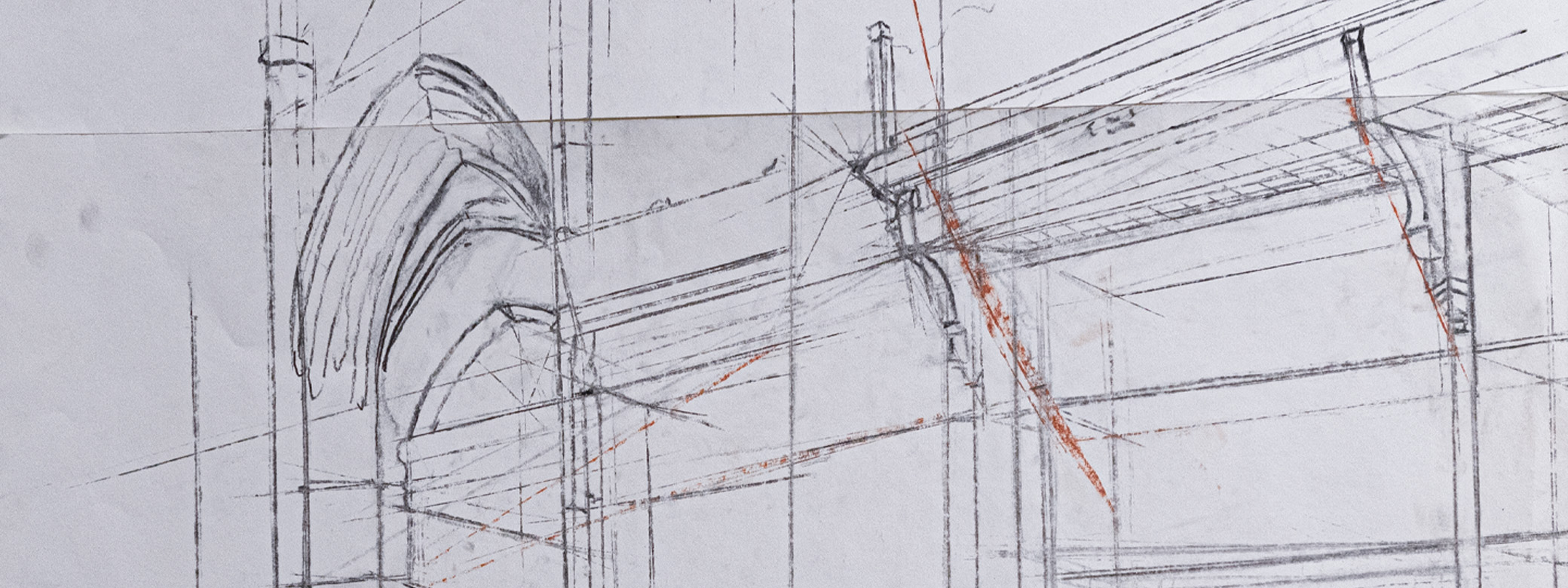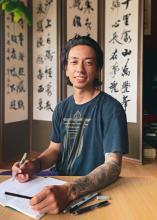Alum Miles Miller has been selected for a Fulbright Fellowship. Below is text originally published on the University of Washington's Office of Merit Scholarships, Fellowships & Awards website during spring quarter 2020.
Miles Miller – Finalist, South Korea, Open Study / Research
Miles is a designer and craftsman living on occupied Coast Salish and Duwamish land. Miles leverages his skillset in product design, woodcraft, and design research to develop tangible solutions that empower people to reconnect with our natural world. His professional experience has shown him that our pursuit of short-sighted “progress” often endangers our future descendants’ wellbeing. This understanding has driven his deep dive into sustainable methods of traditional design and craft that are rapidly being forgotten.
After graduating from the UW Division of Design, Miles worked with the Industrial Designers Society of America and led the production of a film shining light upon empowering design for an international design conference. In 2015, his team received an International Design Excellence Award for their work on the Naloxone Drug Overdose Rescue Kit. Between 2015 and 2017, Miles worked with Yoshihara Furniture Company to design and craft heirloom furniture for private, residential, and commercial clients. This work honed skills in computer-aided design, manufacturing, and wood technology while expanding his focus beyond form and function to sustainable and regenerative production methods. At the Taoist Studies Institute, Miles assisted with the design and build of architectural features on their 30-acre forested campus. There he began to learn about lineages of traditional design and craft that ingeniously address issues of ecology and sustainability.
As a Fulbright Fellow, Miles is researching the indigenous innovations and modernization of traditional Korean residential architecture, design, and craft. Korean homes, known as Hanok (“Hahn-oak”), build in harmony with nature to develop sustainable structures that promote the wellbeing of inhabitants and surrounding land. A deep well of knowledge has been developed through the craft of Hanok but lacks representation and utilization in the international community. Miles will critically investigate the craft techniques and design thinking of modern Hanok while learning about natural materials and sustainable production ecosystems. Leading experts at the National University of Cultural Heritage in Buyeo, South Korea, and architecture firm Urban Detail in Seoul, South Korea, are supporting and overseeing this research.
Miles' Tips [for Future Applicants]
Focus upon answering the “why” as soon as possible, then drill down on the logistics of “how.” The true value of the proposal will be obvious if you begin with an honest evaluation of communal benefit and personal enrichment. This will demonstrate your genuine intent to the people and organizations that will make the “how” possible. Next, forget “never” or “impossible.” You will inevitably encounter discouraging or disinterested parties, sidestep them and find the people and organizations who will empower the proposal. Still encountering issues? Hit the ground running and travel to the host country and meet face to face. Demonstrate your passion and respectful diplomacy. This will show your dedication and determine if there is a good fit for all parties involved. If you make every effort to remove as much doubt from the proposal as possible, you will have no regret or wonder about whether you did enough to craft the strongest application possible.

